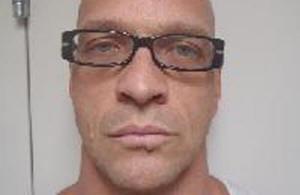|
Nevada execution blocked after drugmaker
protests use of its sedative
 Send a link to a friend
Send a link to a friend
 [July 12, 2018]
By Steve Gorman and Andrew Hay [July 12, 2018]
By Steve Gorman and Andrew Hay
(Reuters) - A condemned killer who had
given up on any further appeals as he awaited execution in Nevada on
Wednesday received an 11th-hour reprieve after a pharmaceutical company
sued to block the use of one of its drugs in the lethal injection
process.
Alvogen Inc, which said the Nevada Corrections Department had obtained
the sedative midazolam illegitimately, won a court order barring it from
being administered to Scott Dozier in the state's newly devised and
untested three-drug execution protocol.
Another judge formally issued an indefinite stay of the execution.
Alvogen was the second U.S. drugmaker since last year to take legal
action against a state using one of its products to administer capital
punishment, saying the brand would be tarnished by association with the
process of putting people to death.
McKesson Corp unsuccessfully sued Arkansas in April 2017, seeking to
stop its muscle relaxant, vecuronium bromide, from being included in the
state's lethal injection mix.

Executions in several states have been stymied by global drug companies'
opposition to supplying products for death sentences, and difficulties
in finding effective replacements.
Dozier, 47, had been scheduled to be put to death at 8 p.m. (0300 GMT on
Thursday) at a state prison in Ely, Nevada, about 245 miles (395 km)
north of Las Vegas, in what would have been the state's first execution
in 12 years.
But the ruling by Clark County District Judge Elizabeth Gonzalez, and
the stay that followed from Judge Jennifer Togliatti, left uncertain
when his execution could proceed.
Gonzalez set a status check on the case for Sept. 10, court spokeswoman
Mary Ann Price said. Corrections spokeswoman Brooke Santina said the
execution would remain effectively postponed for at least that long.
In its lawsuit on Tuesday, privately held Alvogen said use of its
product midazolam for an execution would cause "irreparable injury" to
"its reputation and its goodwill."
Nevada corrections officials revised their lethal injection protocol
last week, saying they were switching to midazolam to replace expired
prison supplies of another sedative, diazepam.
Midazolam, which the World Health Organization counts on its list of
essential medicines, has nevertheless been implicated in a number of
botched executions in other states.
[to top of second column]
|

Scott Raymond Dozier appears in a photo provided by the Nevada
Department of Corrections in Nevada, U.S., July 11, 2018. Nevada
Department of Corrections/Handout via REUTERS

The sedative aims to render the inmate unconscious before
administration of the synthetic opioid fentanyl, and then the
paralytic agent cisatracurium.
'STATE-ASSISTED SUICIDE'
Dozier had already suspended any further appeals of his conviction
or death sentence, according to court documents, and has said he can
no longer bear life behind bars.
"Life in prison isn't a life," he was quoted as saying in a Las
Vegas Review-Journal interview published on Sunday. "If people say
they're going to kill me, get to it."
His lawyer, Thomas Ericsson, told the newspaper last week he knew of
no outside entities that could step in and halt the execution.
Attorney Scott Coffee, a death penalty expert, was quoted as calling
the Dozier case "state-assisted suicide."
Dozier was convicted in 2007 of the murder of Jeremiah Miller, who
was robbed and shot to death in 2002 after traveling to Las Vegas,
where Dozier had promised to help him obtain drugs to make
methamphetamine. Miller's headless torso was later found stuffed in
a suitcase in a trash bin, media said.
Dozier was also convicted in the 2005 murder of Jasen "Griffin"
Green in Phoenix before the trial in Nevada.


Dozier's death sentence was previously stayed last November at the
state's request after a judge blocked the use of cisatracurium
during the execution, only to be overruled by the state Supreme
Court.
(Reporting by Steve Gorman in Los Angeles and Andrew Hay in New
Mexico; Additional reporting by Brendan O'Brien in Milwaukee;
Editing by Peter Cooney and Clarence Fernandez)
[© 2018 Thomson Reuters. All rights
reserved.]
Copyright 2018 Reuters. All rights reserved. This material may not be published,
broadcast, rewritten or redistributed.
Thompson Reuters is solely responsible for this content. |